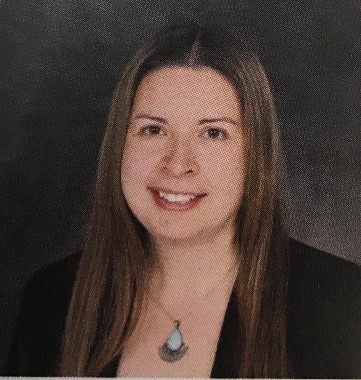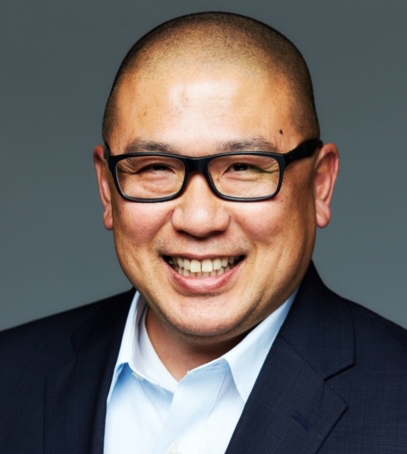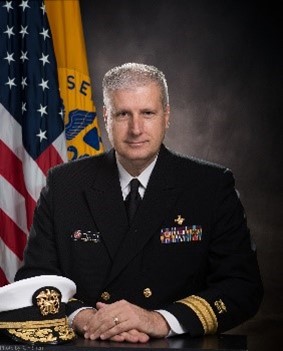Deep Dive: Issues Affecting Native American Communities During the COVID-19 Crisis
American Indian and Alaska Native (AI/AN) persons are disproportionately affected by the COVID-19 pandemic. This webinar calls attention to the social determinants of health that put these individuals at significant risk for contracting the virus and experiencing adverse health outcomes due to it.
Join population health and policy experts from the Indian Health Service, Philips Healthcare, and the National Resource Center on Native American Aging for a discussion moderated by eHI CEO Jennifer Covich Broderick on the challenges of health care delivery during the ongoing pandemic.

Collette Adamsen, PhD (Turtle Mountain Band of Chippewa Indians)
Director
National Resource Center on Native American Aging
Collette Adamsen, PhD is a Research Assistant Professor for the Center for Rural Health (UND) at the University of North Dakota (UND) School of Medicine & Health Sciences in Grand Forks, ND. In addition, she serves as the director of the National Resource Center on Native American Aging (NRCNAA) and is the Principal Investigator (PI) for the Native Urban Elder Needs Assessment Survey (NUENAS) project funded by American Association of Retired Persons (AARP).
As the director of the NRCNAA, Collette provides grant project direction and leadership, conducts research on health disparities among American Indian/Alaska Native/Native Hawaiian elders throughout the nation, manages data for the NRCNAA, and functions as an American Indian content specialist. Furthermore, in her role as PI for the NUENAS project, she is expanding her research efforts and serving as a resource for the Native Urban Elder population.
Collette received a Bachelor of Arts degree in Economics, a Master of Public Administration, with an emphasis in Health Administration, and a Doctorate in Educational Foundations and Research from UND. She is an enrolled member of the Turtle Mountain Band of Chippewa Indians and is originally from Belcourt, ND.

Jennifer Covich Bordenick
Chief Executive Officer
eHealth Initiative and Foundation
For over 20 years, Jennifer has focused on quality and innovative technology solutions to transform healthcare. As CEO, she provides leadership for research, education and advocacy components of eHealth Initiative and Foundation (eHI). Convening senior executives from every group in healthcare to discuss, identify, and share best practices that transform the delivery of healthcare. Focus areas: improving health and wellness through innovative solutions; interoperability; privacy concerns; artificial intelligence; payment models to support innovative care; and tech tools for chronic care. She led development of dozens of national surveys and published groundbreaking reports. As part of her work with the Foundation, she led grants with California Health Care Foundation, Commonwealth Fund, Aetna Foundation and Bristol Meyers Squibb Foundation. Jennifer is co-chair of the Federal HIT Policy Committee’s Strategy and Innovation Workgroup; member of the HL7 Board of Directors; and a member of the Diabetes Collaborative Stakeholder Panel. Jennifer is a faculty member for the MHA and MHIA graduate programs at George Washington University. Prior to joining eHI, Jennifer headed up the strategic marketing at OpenNetworks, Inc., focusing on security solutions for the healthcare industry. She led healthcare industry relations at MicroStrategy, Inc., focusing on data-mining solutions for the pharmaceutical and healthcare industry. She spent four years at the National Committee for Quality Assurance as Director of Policy and Product Development, helping develop national quality standards for healthcare organizations. Jennifer began her career at the George Washington University Hospital, Medical Center and Health Plan working on quality management initiatives, clinical pathways and healthcare administration. Jennifer earned a master's in Human Resource Development, completed coursework in health administration doctoral program at GWU, and resides in Maryland with her husband and two children.

John Sun
Vice President, Indian Health Service and Rural Health
Philips Healthcare
John Sun has over 24 years of government contracting experience, specializing first in architectural design, then in change management, business process reengineering, and acquisition strategies. He was previously the Director of Business Development for both an Alaskan Native Corporation in Bristol Bay and an Native American Corporation in Cherokee Nation Businesses. In his role, John grew core competencies in medical research for the Center for Disease Control (CDC) and Walter Reed Army Institute of Research (WRAIR) and Human Performance for various Department of Defense programs such as the Armed Forces Health Surveillance Bureau (AFHSB) and at the Naval Health Research Center (NHRC), thus giving employment opportunities back to each tribe. During COVID-19, John has been instrumental in supporting various stakeholders, including the state of Texas and Washington DC, working closely with the Strike Force in ventilator production and deliveries, surge center planning, and COVID-19 playbook development. John leverages his diverse background to recommend creative solutions to the public sector through strategic planning that not only solves immediate issues, but sustains their missions for a long period of time with minimal reinvestment.

Rear Admiral Michael Toedt, MD
Chief Medical Officer
Indian Health Service
Rear Adm. Michael Toedt serves as the Chief Medical Officer of the Indian Health Service. The IHS, an agency within the Department of Health and Human Services, is the principal federal health care provider for 2.56 million American Indians and Alaska Natives who are members of 574 federally recognized Tribes in 37 states. As the CMO, Dr. Toedt is IHS’s lead expert on medical and public health topics, provides national leadership for the clinical and community-based health programs of the agency, and serves as the primary liaison and advocate for IHS health professionals. Dr. Toedt previously served as CMO for the IHS Nashville Area, as Acting Chief Medical Information Officer for the IHS, and as Clinical Director for the Cherokee Indian Hospital. He earned his Bachelor of Science in applied physics with honor from the Georgia Institute of Technology and his Doctor of Medicine from the Uniformed Services University of the Health Sciences. He completed residency in family medicine and fellowship in obstetrics at the Franklin Square Hospital Center in Baltimore. He has served on numerous IHS and interagency committees, published several peer-reviewed articles, and holds several medical school clinical faculty teaching appointments. He is board certified in family medicine and maintains active clinical privileges at several IHS and tribal facilities.